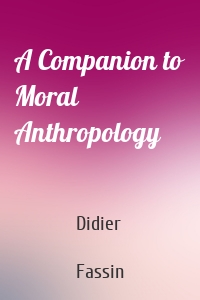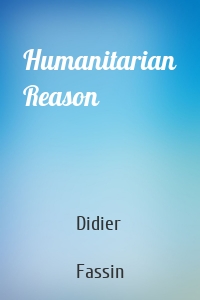Didier Fassin
8 кн.
Death of a Traveller
It is a simple story. A 37-year-old man belonging to the Traveller community is shot dead by a special unit of the French police on the family farm where he was hiding since he failed to return to prison after temporary release. The officers claim self-defense. The relatives, present at the scene, contest that claim. A case is opened, and it concludes with a dismissal that is upheld on appeal. Dismayed by these decisions, the family continues the struggle for truth and justice. Giving each...
| Автор | Didier Fassin |
Death of a Traveller
It is a simple story. A 37-year-old man belonging to the Traveller community is shot dead by a special unit of the French police on the family farm where he was hiding since he failed to return to prison after temporary release. The officers claim self-defense. The relatives, present at the scene, contest that claim. A case is opened, and it concludes with a dismissal that is upheld on appeal. Dismayed by these decisions, the family continues the struggle for truth and justice. Giving each...
| Автор | Didier Fassin |
A Companion to Moral Anthropology
A Companion to Moral Anthropology is the first collective consideration of the anthropological dimensions of morals, morality, and ethics. Original essays by international experts explore the various currents, approaches, and issues in this important new discipline, examining topics such as the ethnography of moralities, the study of moral subjectivities, and the exploration of moral economies. Investigates the central legacies of moral anthropology, the formation of moral facts and values, the...
| Автор | Didier Fassin |
Life. A Critical User's Manual
How can we think of life in its dual expression, matter and experience, the living and the lived? Philosophers and, more recently, social scientists have offered multiple answers to this question, often privileging one expression or the other – the biological or the biographical. But is it possible to conceive of them together and thus reconcile naturalist and humanist approaches? Using research conducted on three continents and engaging in critical dialogue with Wittgenstein, Benjamin, and...
| Автор | Didier Fassin |
Humanitarian Reason
In the face of the world’s disorders, moral concerns have provided a powerful ground for developing international as well as local policies. Didier Fassin draws on case materials from France, South Africa, Venezuela, and Palestine to explore the meaning of humanitarianism in the contexts of immigration and asylum, disease and poverty, disaster and war. He traces and analyzes recent shifts in moral and political discourse and practices – what he terms «humanitarian reason»– and shows in vivid...
| Автор | Didier Fassin |
Prison Worlds
The prison is a recent invention, hardly more than two centuries old, yet it has become the universal system of punishment. How can we understand the place that the correctional system occupies in contemporary societies? What are the experiences of those who are incarcerated as well as those who work there? To answer these questions, Didier Fassin conducted a four-year-long study in a French short-stay prison, following inmates from their trial to their release. He shows how the widespread use...
| Автор | Didier Fassin |









